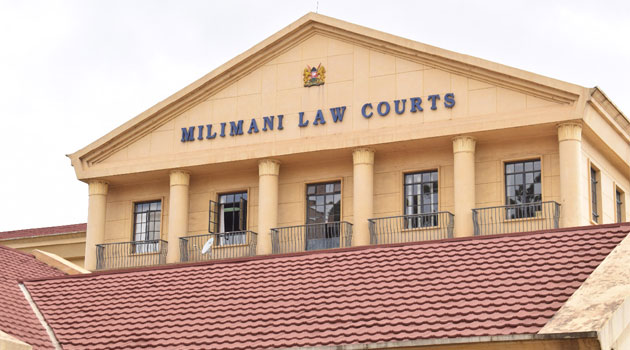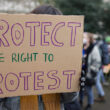By Elizabeth Mwangangi
Facts in Brief
On July 16, 2022, Joshua Otieno Ayika, using his verified Twitter handle posted a tweet predicting an imminent military takeover in Kenya.
This tweet led to his arrest on July 21, 2023, and subsequent arraignment on July 24, 2023, where he was charged with “Subversive Activities” contrary to Section 77(1)(a) of the Penal Code and “Publication of False Information” contrary to Section 23 of the Computer Misuse and Cyber Crimes Act, 2018.
The charges claimed his words were prejudicial to public order and security, with the potential of causing panic and chaos. As a result, this
prompted the petitioners to question the constitutional validity of Section 77 of the Penal Code, arguing it violates several constitutional rights and it limits the freedom of expression.
Issues for Determination
The court identified the following issues for determination based on the petitioners and the respondents case
- What is the normative content and importance of freedom of expression in a democracy?
- Does section 77 of the Penal Code limit the freedom of expression under Articles 33 (1).
- Is the limitation of freedom of expression by section 77 a limitation by law”?
- Does the limitation of freedom of expression by section 77 serve a legitimate aim”?
- Is the limitation of freedom of expression by section 77 necessary” in an open and democratic society?
- What are the appropriate reliefs in this Petition?
- which party bears the costs
Arguments by the Parties
Petitioners Case
The petitioners acknowledged the supremacy of the Constitution as it provides for an elaborate framework for freedom of expression in Kenya. Moreover, article 2(6) domesticates into law treaties ratified by Kenya. Consequently, the ICCPR, African Charter among other instruments emphasize of the promotion of freedom of expression, as the cornerstone of any democratic state.
It was the petitioner’s case that, while the freedom of expression is a constitutional safeguard, it is not absolute. Consequently, in assessing whether the limitation of this right is reasonable, the petitioners contended that a court should consider the nature, purpose and the extent of the limitation. They further submitted that, section 77 of the Penal Code impairs the freedom of expression in Article 33(1) by punishing and criminalizing any person who utters any words with subversive intentions.
It was the petitioners case that this limitation by section 77 is unconstitutional since freedom of expression is only limited by Article 33(2). Moreover, the limitation by section 77 of the penal code, is not recognized by law due to the broadness and vague wording of its provisions, which negates the principle of legality in Article 50(2) (n). As a result, the petitioners submitted that the court should find and hold section 77 of the penal code unnecessary in a democratic state.
Respondent’s Case
The respondents in opposing the petition affirmed that subversion is an offence clearly defined in the penal code in section 77 (3) and therefore it is free from ambiguity. Moreover, they submitted that the interested applicant’s tweet was meant to incite violence thus validating his charge under section 77 of the penal code. It was the respondents case that freedom of expression is not an absolute right and it does not extend to incitement of violence, among others in Article 33(2). As a result, the respondents defends the constitutionality of section 77 of the penal code as it aligns with Artice 33(2) of the Constitution. They further argued to justify the limitation of the freedom of expression on the ground that it is reasonable as it offers the protection of rights and security of Kenyans.
On the question of constitutionality of section 77 of the penal code, it was the respondents case that the court should consider its purpose and effect and that the burden of proving its invalidity lies with the petitioners. They further contend that section 77 of the penal code does not negate the principles of legality in Article 50(2)(n) and that at the time of commission of the offence, provisions of section 77 were still recognized in law. It is their prayer that the petition is dismissed for lack of merit with costs awarded to them.
Reasoning of the Court
The court emphasized that freedom of expression and the rights to information are the cornerstone of any democratic state and that every person has the right to freedom of expression, which includes, freedom to seek, receive or impart information or ideas; freedom of artistic creativity; and academic freedom and freedom of scientific research.
On the constitutionality of a provision, the court asserted itself that it must check both the purpose and effect of the Section or the Act, and assess whether any of the two could lead to the provision being declared unconstitutional and was guided by the case of Robert Alai v The Hon Attorney General & Another [2017] eKLR. In addition, in assessing the offence of subversion created by section 77, the court opined that the Penal Code has not sufficiently defined the term subversive intentions, due it its broad and vague wording.
Moreover, section 77(1) creates a derogation from the freedom of expression due to its provision that criminalizes any person who utters any words with subversive intentions. Consequently, this derogation existed prior to the promulgation of the 2010 Constitution and would thus not be a derogation envisioned under Article 24(2).
The court therefore, in favour of the petitioners issued an order declaring Section 77 (1) and (3)(a), (b), (c), (d), (e), (f), and (g) of the Penal Code, Cap 63 unconstitutional, further, its enforcement by the respondents is equally unconstitutional. The petition was allowed with no costs since it is a public interest matter.
Conclusion
The outcome of this case is a significant victory to the protection of the freedom of expression in Kenya. It further enriches the jurispurudence by setting a precedent for future cases. . Additionally, this case also has a positive impact on Kenyan society because it encourages citizen engagement by prohibiting the arbitrary use of power by authorities to silence critics.
While it is a positive advancement to the enjoyment of the constitutional safeguard of freedom of expression,it is important to remain vigilant to ensure that fut However, it is important to remain vigilant to ensure that future laws don’t reinstate similar restrictions in related contexts.







